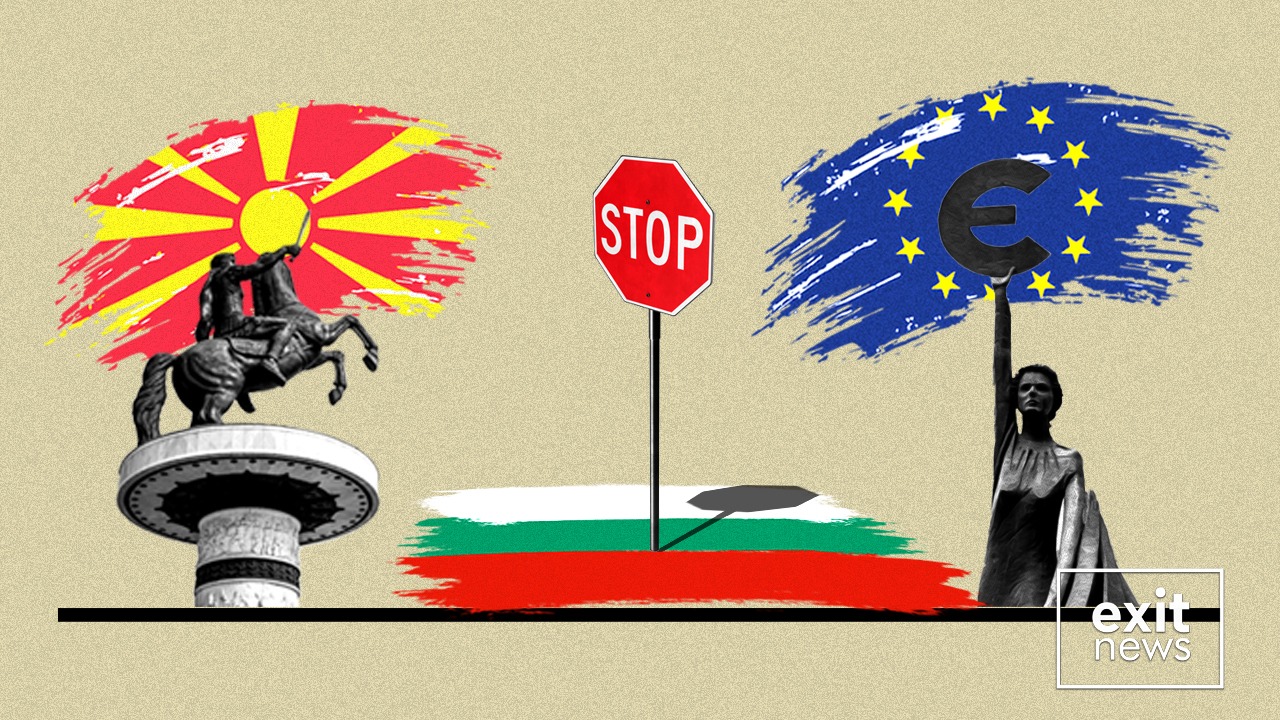
The Bulgarian parliament will make on Wednesday (22 June) an attempt to progress in efforts to lift the country’s veto on North Macedonia starting accession talks, but MPs are also likely to pass a no-confidence vote against the government of Prime Minister Kiril Petkov.
On Wednesday at 3 pm, the Parliamentary Committee on Foreign Policy will meet to discuss recent compromise proposals by France, while in plenary at 7.30 pm, MPs will vote on a no-confidence motion against Petkov’s government tabled by the opposition.
Petkov’s cabinet lost its majority when its coalition partner, the populist “There is such a people”, left officially over disagreements concerning the budget and policy vis-à-vis Skopje.
Sofia has vetoed the formal opening of EU accession negotiations with Skopje, also impacting Tirana, whose progress is tied to that of its neighbour. Bulgaria wants changes to the constitution and solutions to language, culture, and heritage disputes. At the same time, North Macedonia says accession should open, and this should be dealt with during the chapters.
On Tuesday, the leaders of Albania, North Macedonia and Serbia hinted they would boycott the upcoming EU summit and would confirm on Wednesday at 10 am. Albanian Prime Minister Edi Rama said it was due to Bulgaria holding the accession process hostage.
Serbia, Albania, North Macedonia could boycott EU summit, Vucic says
Slavi Trifonov, a former showman and leader of the party, accuses Petkov of secretly plotting to lift the veto despite a parliamentary consensus that Skopje should first respond to the Bulgarian demands.
The French Presidency of the Council has tabled a compromise proposal, similar to that of Skopje’s, with a timeline for solving the issues and involves the European Commission as guarantor. President Rumen Radev spoke positively of the proposal, hinting that the solution to the problem may be in sight.
The sitting of the Parliamentary Committee on Foreign Policy will discuss the French proposal, BGNES agency reported. Another document to be addressed is the protocol of the second sitting of the bilateral commission between North Macedonia and Bulgaria, in charge of implementing the 2017 Friendship agreement.
These two documents, obtained by EURACTIV, indicate progress in the efforts to find a solution toward lifting the Bulgarian veto. However, a vote in the plenary would be needed for this goal to be achieved, which is unlikely to occur before the EU summit on Thursday and Friday.
Instead, MPs will vote a no-confidence motion against the government of Petkov, which is likely to pass. The opposition controls 125 MPs, while the three parties remaining in the government plus six independent MPs (who left “There is such a people”) have a total of 115.
If Petkov loses the vote, his force will still have the chance to propose another cabinet in the coming days, although political scientists agree that his chances are slim.
More likely, the country is entering a period of political instability, with early elections looming in Autumn. This could be the fourth return to the polls in just over a year.
Several political forces are expected to bank on nationalism in the pre-election period making the solution of the Macedonian veto even more difficult in the next parliament.

